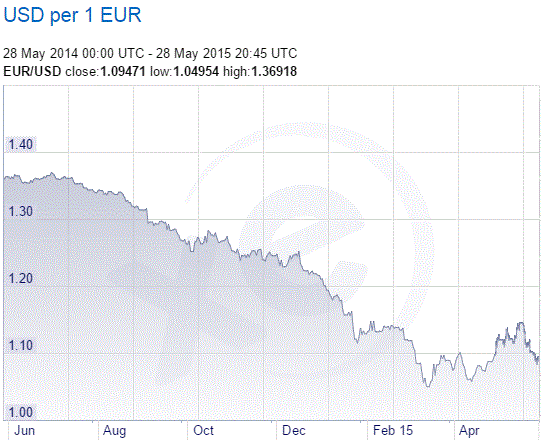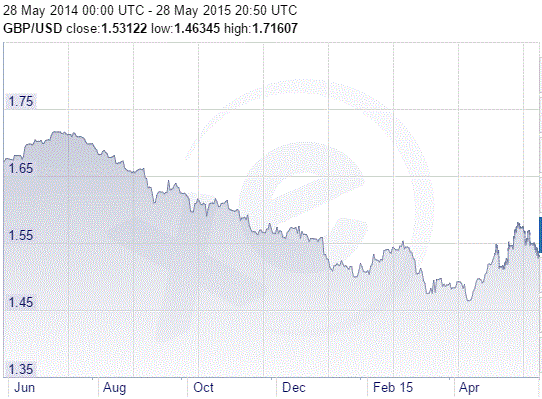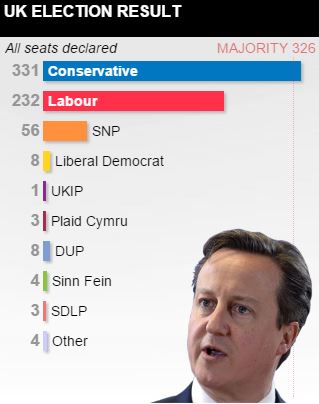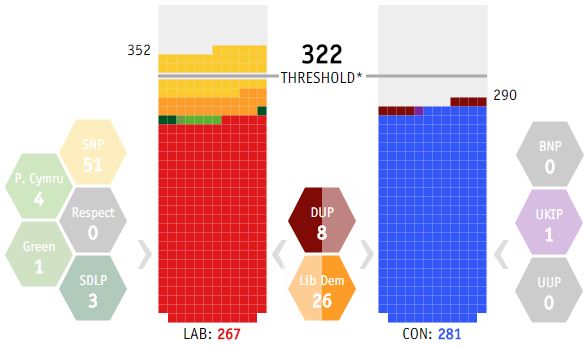The Economist's Gulliver blog points out something opponents to Heathrow's third runway may have missed:
In Britain the long-awaited Davies Commission report on a third runway for London is set for release shortly. The main objections to new runways by locals is the additional noise they will suffer. But by the time any new runway gets built in a decade or more, much of the fleet serving London will have been replaced by these new planes that whisper rather than roar. Describing volume is tricky but Bombardier’s new CSeries, a small single-aisle short-haul jet, equipped with Pratt & Whitney’s geared turbofan engine, was barely audible at times during its flight at just a few hundred yards from the watching crowds. Boeing’s 787 Dreamliner (pictured) and even Airbus’s A350 and A380 also made far less noise than would seem possible. Critics will point out that the planemakers do their utmost to make these display particularly silent, nevertheless the results are astonishing.
The noise reduction from new technology is significant. In early jet engines, which were ear-splitting, all of the air was forced through the engine core in which combustion takes place. High bypass systems, with some of the air directed around the engine core, made engines quieter and more fuel efficient. The engine on the CSeries uses a gear, allowing the front fan to turn at a lower speed than the engine core, reducing noise further. The CSeries, 787 and A350, constructed from composite materials, are lighter than their predecessors too, which helps keep noise down.
My new place is directly under the approach path to O'Hare's runway 28C, which opened in October 2013. Residents along this flight path worried that the runway would generate tons of noise. As it turned out, it really didn't, principally because of these new technologies. (Also because landing airplanes make much less noise than departing airplanes.) Someday, I hope London gets another runway, and I hope that people realise sooner rather than later that it won't be nearly as bad as they fear.
You know, it sucks to be Greece right now, and Germany is really screwing itself by not negotiating with them. But as an American tourist about to visit the continent, this is a nice thing to see (particularly after the bump earlier in the month):

This doesn't completely suck, either (I'm stopping in London on the way):

South Africa Airlines will no longer transport your trophies:
Shooting a marvel of nature and shipping its carcass home seems an odd practice to many. But business is roaring. An estimated 1,000 captive lions are shot dead by mostly American and European tourists on South African ranches annually. That's nearly double the number of wild lions felled across the entire continent. Killing beasts in fenced-off, private property is easier than gunning them down on their own turf. It's also much cheaper: tourists can pay $20,000 for a captive male, compared with $75,000 for a wild one. The expansion of the “canned hunting” industry—which breeds lions by isolating mothers from their cubs to jumpstart ovulation—has lifted African trophy hunting revenues to $200m a year.
For SAA, making money from this booming trade should be as easy as shooting fish in a barrel. Tourists have few options but to load their spoils onto planes for one final journey, providing the flag-carrier with lucrative custom beneath the passenger deck as well as above it. Cargo can account for up to 10% of a passenger airline’s revenue. In an industry with average annual profit margins of 1-2% per cent, that is nothing to sniff at. Cargo is also one of the more trouble-free aspects of the business: freight doesn't complain when you push it around; and many of the fixed costs of getting a plane airborne apply regardless of how full the cargo hold happens to be. SAA, which is in financial straits, can ill-afford to turn away such easy money.
No matter how profitable and defensible, SAA has decided that trophy kill cargo is bad business.
Good on them. And maybe someday we'll give lions rifles and turn them loose on hunters. Or just skip the rifles.
Fortunately, I have a couple of long flights coming up in two weeks. Unfortunately, not all of this will be relevant then:
Tonight I'm taking a short break to go to the Wait! Wait! Don't tell me taping, which is conveniently located two blocks from my office. And tomorrow I might have some time to think.
 Taking a moment to surf through the UK papers this morning in the aftermath of the Tory election win Thursday, I find that the usually Labour-friendly Independent has some unkind things to say about the both parties:
Taking a moment to surf through the UK papers this morning in the aftermath of the Tory election win Thursday, I find that the usually Labour-friendly Independent has some unkind things to say about the both parties:
The next few months will see the Conservatives trying to figure out how to govern in the center, so expect lurches rightward every so often. And Labour will have to figure out how to run a campaign. But with an outright majority, it seems clear the Tories will be in power until May 2020, by which time, if history is any guide, the UK should be even more stratified and illiberal than it was at the end of Thatcher's rule.
Thanks ever so, Ed.
Instead of worrying how to put together another coalition (or even minority) government today, David Cameron has won an outright majority:
At the time of writing, with almost all 650 seats declared, the Conservatives had 325, Labour 229, the SNP 56 and the Liberal Democrats eight. In practice 323 Members of Parliament is the number needed to form a majority government.
As Cameron drove to Buckingham Palace to notify Queen Elizabeth that she had a new government from day one, rather than the chaotic search for a viable cross-party coalition of either the right or the left, [Ed] Miliband resigned as Labour leader, shocked by the scale of his rejection by the electorate. Among the night’s casualties were a raft of senior Labour figures, including his shadow chancellor Ed Balls, defeated in Leeds.
The result was a vindication of Cameron’s much-criticized decision to run a largely negative campaign, stressing the risks to Britain’s still-fragile economic recovery of a Labour government that would overspend and drive away investors through taxes aimed at the wealthy and their tax-avoiding practices.
The majority isn't large enough to guarantee passage of the Conservative agenda in full. For one thing, Conservative back-benchers will probably agitate to pull the country out of the European Union, which would be disastrous for Britain. And with the SNP's 56-vote bloc, another referendum on Scotland seems likely in two or three years.
The Economist:
Europe is especially dangerous for the Conservatives. Under pressure from Eurosceptics in his party, Mr Cameron promised to spend two years renegotiating Britain’s place in the EU before holding an in-out referendum by the end of 2017. Setting such a firm deadline was foolish: there is a real risk that, in the mid-term doldrums, British voters will sever their country’s relationship with its most important trading partner. But Mr Cameron has no option but to stick with it.
The difficulty will be calibrating Britain’s demands. Ask for too much and he will come home empty-handed. Win too little from Brussels and he will lose too many of his own party for his government to survive. He should avoid all talk of treaty change (which European governments are unlikely to countenance) and focus instead on cutting red tape, extending the single market and cracking down on welfare tourism. Then he should spin every slight achievement as a mighty victory.
Scotland poses a bigger problem. The Nationalists’ triumph was almost complete and they now have a large foothold in the parliament of a country that they wish to dismember. A second independence referendum in the next few years seems increasingly likely. English resentment of Scotland is growing, and is particularly strong among Tory backbenchers. One way out of this bind is for Mr Cameron to move more boldly towards far-reaching devolution. That might restore some Scottish faith in Westminster. And the country’s rent-seeking political culture will end only when the Scottish government has power over finances.
Like a lot of Labour-leaning people, I'm curious to see how the party recover from the loss today. The Liberal Democrats have a harder time of it, though: Nick Clegg also resigned, now that the entire Lib-Dem caucus is small enough to fit in a minivan.
Polls have closed in the UK, and early exit polling suggests a Tory plurality of 316 to Labour's 239. This puts the Conservatives withing 8 seats of forming a government—though with the Liberal Democrats apparently holding onto just 10 seats, and hating every fibre of the Tory party, they will have to count on the right-wing parties to push them over the top.
I'll have more later on.
The London borough of Barking and Dagenham (yes, really) will fine you £80 if you don't clean up your dog's poop. How will they catch you? Doggy DNA:
In its pilot stage, only one or two local dog parks will be involved in the DNA testing, according to Eric Mayer, head of business development for Biopet Vet Lab. Anyone who wants to use those facilities will have to submit a canine swab, which cost about $45. (The fee will probably be split between the owner, the borough and the lab.) But by 2016, all 27 of the borough's parks and open spaces could be patrolled.
That seems a little invasive on the one hand, but on the other, it hurts dog owners everywhere when one or two lazy bastards fail to clean up after their pets. Still, who wants the job of matching samples to dogs?
British citizens go to the polls (or, as they say, Parliament goes to the country) the day after tomorrow. At the moment, neither the ruling Conservative party nor the opposition Labour party is predicted to win the 323 seats (out of 660) necessary to form a government. Most forecasts give Labor 267 seats to the Tories' 281, which means that once again they will need to form a coalition government.
The Economist has a tool to illustrate the problem facing the two major parties. With the UK Independence Party (similar to the Tea Party, but without the grace, subtlety, or Christianity) and Democaratic Unionists (Northern Irish protestants) supporting the Tories and the Greens, Welsh, and Northern Irish Catholic parties supporting Labour, the count is still only 275 to 290 in favor of the Tories.
The likely outcome will be the Scottish National Party and its 51 seats forming up with Labour. The Liberal Democrats 26 seats won't be enough to do it—but they will almost certainly join the government no matter who forms it.
This, then, is the likely outcome Thursday:

That looks great for Ed Miliband, except for the SNP. This is simply because the SNP's raison d'être is Scottish independence. Stay tuned...